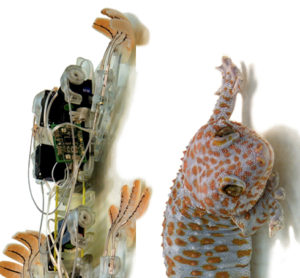News, Why do men — and other male animals — tend to die younger? It’s all in the Y chromosome
In a study published today in Biology Letters, researchers from UNSW Science’s School of Biological, Earth and Environmental Sciences analysed all available academic literature on sex chromosomes and lifespan — and they tried to establish whether there was a pattern of one sex outliving the other that was repeated across the animal kingdom. Specifically, they wanted to test the ‘unguarded X hypothesis’ which suggests that the Y chromosome in heterogametic sexes — those with XY (male) sex chromosomes rather than XX (female) sex chromosomes — is less able to protect an individual from harmful genes expressed on the X chromosome. The hypothesis suggests that, as the Y chromosome is smaller than the X chromosome, and in some cases absent, it is unable to ‘hide’ an X chromosome that carries harmful mutations, which may later expose the individual to health threats. Conversely, there is no such problem in a pair of homogametic chromosomes (XX), where a healthy X chromosome can stand in for another X that has deleterious genes to ensure those harmful genes aren’t expressed, thus maximising the length of life for the organism.
Learn about our two Decals!
 Click here to find out more about our Fall Bioinspired Design Decal and our Spring Bioinspired Design in Action Decal – ALL MAJORS are welcome.
Click here to find out more about our Fall Bioinspired Design Decal and our Spring Bioinspired Design in Action Decal – ALL MAJORS are welcome.Berkeley BioDesign Community
 Click here to learn about the BioD: Bio-Inspired Design @ Berkeley student organization or here to signup for more info.
Click here to learn about the BioD: Bio-Inspired Design @ Berkeley student organization or here to signup for more info.Search
Student Login




I imagine that the neurological circuits underlying these processes are governed by both 2d spacing maps with their brains as…
to reduce the impact of car accidents, it may be possible to study the force diverting physics of cockroaches to…
you see this type of head-bobbing stability in many avian creatures related to pigeons like chickens. the head ability to…
not like they taught horses how to run! this is an example of convergent evolution where both sea creatures and…
The brain functions in a similar way with neuronal connections. our brains are able to utilize the multiplicity of connections…